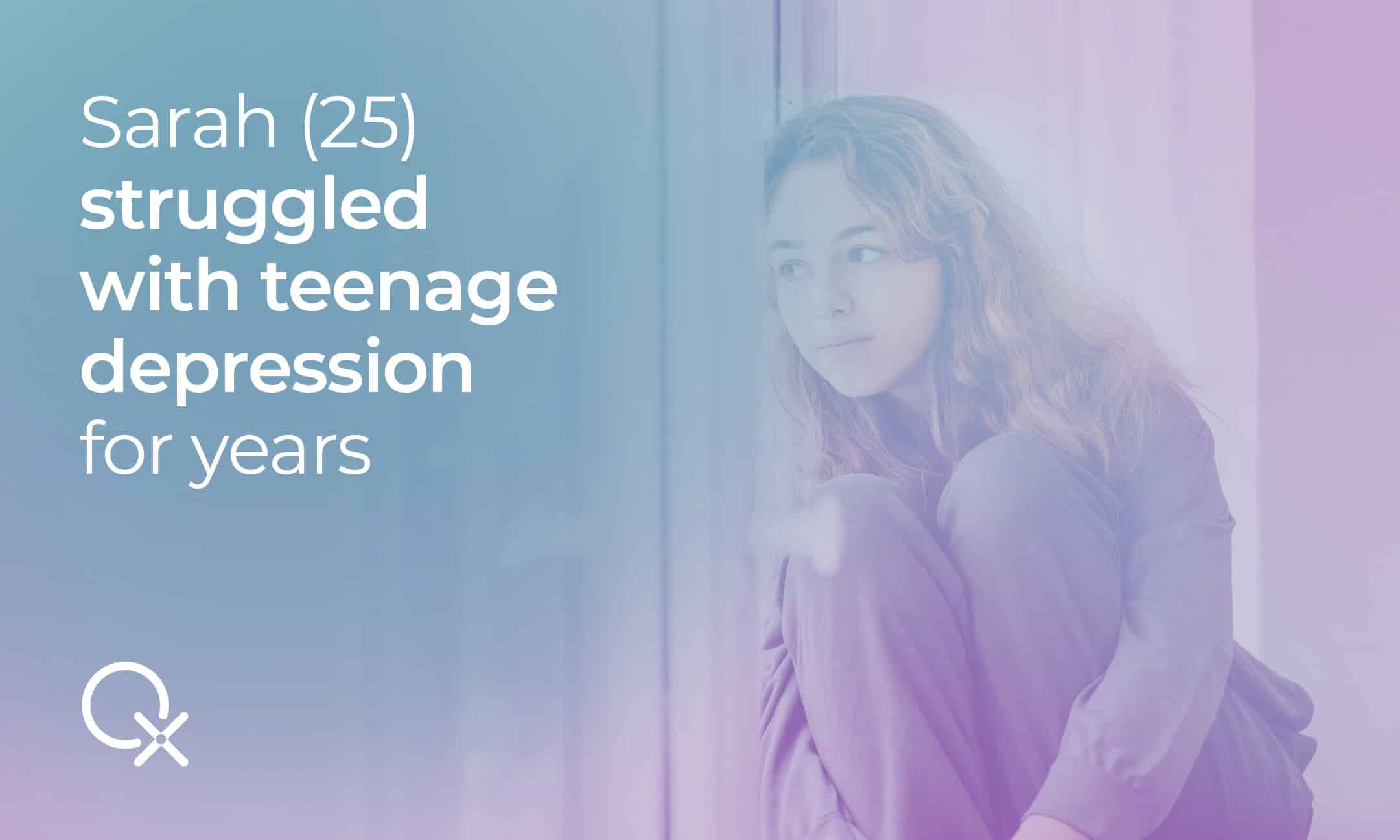
At 16, Sarah had been battling teenage depression for over two years. Her once vibrant personality had dulled, replaced by a constant feeling of fatigue and hopelessness. Despite being raised in a loving family and having plenty of friends, Sarah got little relief from traditional therapies and medications. Then she got into contact with biofeedback practitioner and expert Margret Margrétardóttir.
Sarah: It feels like being trapped in a deep, dark hole with no way out. Every day is a struggle just to get out of bed. I felt constantly tired, even though I wasn’t doing much. Even simple things like deciding what clothes to wear just felt so overwhelming.
Teenage depression is a serious mental health condition that affects how a teenager feels, thinks, and behaves. More than just moodiness, feeling sad or going through a rough patch, it is a persistent feeling of sadness and loss of interest that can lead to emotional and physical problems. Teenage depression can significantly impact a teenager’s daily life, academic performance, and relationships.
Sarah: It affected every aspect of my life. I used to love painting, and hanging out with my friends. I lost interest in everything I once enjoyed, and it felt like I was just going through the motions. School became a nightmare. I couldn’t concentrate, and my grades started slipping. I didn’t want to be around people anymore, and I often felt like a burden. Even when I was with my family, I felt isolated and alone. There was this invisible wall between me and the rest of the world.
Margret: The causes of teenage depression are usually multifold. Teenagers are at a unique developmental stage. They are not only dealing with the pressures of school, social and personal relationships, but also the physical and hormonal changes of puberty.
Teenage depression symptoms include:
Sarah’s breakthrough came when her family discovered biofeedback through a recommendation from their family doctor. “My parents were willing to try anything at that point. I was skeptical at first but decided to give the sessions with Margret a chance,” she says. The decision marked the beginning of a transformative journey that would help Sarah reclaim her life.
Margret: Biofeedback is a non-invasive process that works by enhancing self-awareness. It always starts with a comprehensive assessment to understand the clients’ needs. When Sarah first came to me, she was in a very fragile state. My initial assessment therefore focused on identifying the key stressors affecting her physiological and psychological well-being. This comprehensive approach allowed me to create a personalized plan for her.
Margret: Biofeedback sessions involve a biofeedback device and sensors which are painlessly attached to the skin, to measure physiological functions like heart rate, muscle tension, and breathing patterns. Once the client is connected to the biofeedback device, they get immediate insights into their body’s stress responses. This real-time feedback on a monitor allows them to see how their body reacts to stress and anxiety, and to gain control over those reactions by using relaxation techniques.
Sarah: It was strange at first, seeing all those sensors and the real-time feedback on the monitor. But it was also comforting to see how my body responded to different techniques. Over time, I felt more in control. I started painting again, meeting up with friends, and going to school no longer felt like a burden. I even graduated with honors, and two years ago I got my master’s degree in Marketing.
Biofeedback helps you become more aware of physiological responses to stress and anxiety, which are often linked to depression. By learning to control these responses, individuals can reduce the physical symptoms of stress and anxiety, such as muscle tension and rapid heart rate. This can lead to a decrease in overall stress levels and an improvement in mood and mental well-being.
Margret: Biofeedback is almost always only one piece of the puzzle. Sarah’s case was no different. Based on the initial assessment, I also incorporated nutritional counseling, an exercise routine, and mindfulness practices into Sarah’s personalized plan to help her overcome depression. A multi-faceted approach like that was needed to ensure that she not only overcame depression but also to prevent a relapse.
Sarah: I still feel in control of my life, even though I know you can’t control everything, of course. Overall, I feel quite happy. I’m just enjoying life, you know. I’m 25 now so it’s been a few years since my last session. But I whenever I’m starting to feel anxious at work – I’m an account manager – I apply the stress management techniques Margret has taught me. I still try to stick to the nutrition plan she created for me, too.
Sarah: Don’t give up. It might feel like there’s no way out, but there is. Seek help, talk to someone you trust, and don’t be afraid to try different methods until you find what works for you. For me, biofeedback was a game-changer. It gave me the tools to understand and overcome my depression. Remember, you’re not alone, and with the right support, things can get better.
Margret Margrétardóttir is a biofeedback practitioner and teacher at the QX World Health Academy.
Sarah G. is an account manager from Birmingham (UK).
+1 (989) 681-1063
+1 (856) 322-8589